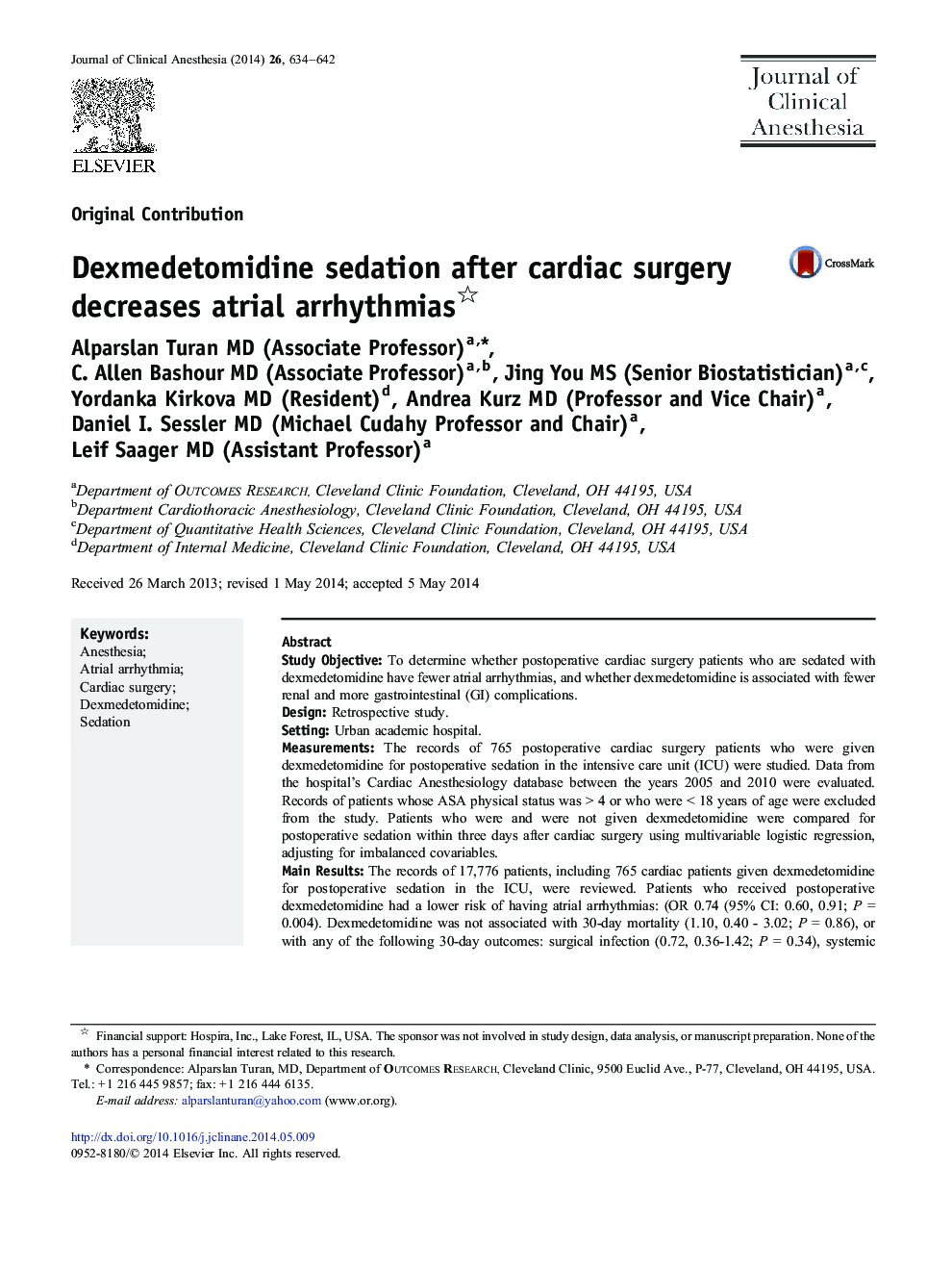| Article ID | Journal | Published Year | Pages | File Type |
|---|---|---|---|---|
| 2762517 | Journal of Clinical Anesthesia | 2014 | 9 Pages |
Study ObjectiveTo determine whether postoperative cardiac surgery patients who are sedated with dexmedetomidine have fewer atrial arrhythmias, and whether dexmedetomidine is associated with fewer renal and more gastrointestinal (GI) complications.DesignRetrospective study.SettingUrban academic hospital.MeasurementsThe records of 765 postoperative cardiac surgery patients who were given dexmedetomidine for postoperative sedation in the intensive care unit (ICU) were studied. Data from the hospital’s Cardiac Anesthesiology database between the years 2005 and 2010 were evaluated. Records of patients whose ASA physical status was > 4 or who were < 18 years of age were excluded from the study. Patients who were and were not given dexmedetomidine were compared for postoperative sedation within three days after cardiac surgery using multivariable logistic regression, adjusting for imbalanced covariables.Main ResultsThe records of 17,776 patients, including 765 cardiac patients given dexmedetomidine for postoperative sedation in the ICU, were reviewed. Patients who received postoperative dexmedetomidine had a lower risk of having atrial arrhythmias: (OR 0.74 (95% CI: 0.60, 0.91; P = 0.004). Dexmedetomidine was not associated with 30-day mortality (1.10, 0.40 - 3.02; P = 0.86), or with any of the following 30-day outcomes: surgical infection (0.72, 0.36-1.42; P = 0.34), systemic infection (1.38, 0.93 - 2.05; P = 0.11), GI complications (1.34, 0.74 - 2.42; P = 0.33), or renal complications (1.23, 0.70 - 2.15; P = 0.48).ConclusionsDexmedetomidine use after cardiac surgery was associated with a lower incidence of atrial arrhythmias.
